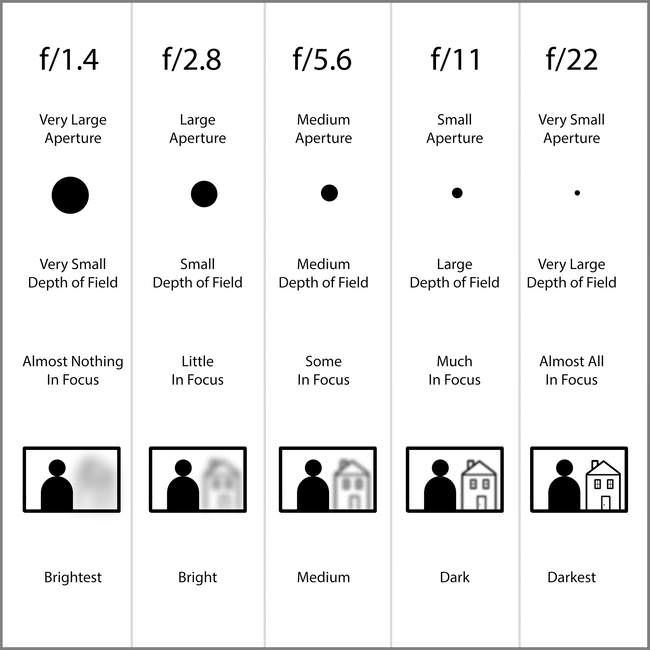Aperture is a confusing topic for beginners in photography – it controls so many variables in your images, from exposure to depth of field, which can make it quite difficult to grasp initially. To make matters worse, the F-numbers of aperture are backwards from what you may expect! A small aperture is a large F-number, and a large aperture is a small F-number. I certainly was confused by aperture when I first started taking pictures, and it took me quite a while to really understand how it works. Nasim already covered aperture in-depth for beginners, but I wanted to pass along a quick diagram that I made – hopefully something that you will find useful. This chart covers the most important effects of aperture in photography, as well as common terms that photographers use to describe their settings.
Aperture is a property of your lenses – essentially a pupil that opens or closes to let light pass. The circles in the chart below represent the actual aperture size in your lens, which shrinks as you move from f/1.4 to f/22. To make this diagram as clear as possible, I did not darken or lighten any of the sample illustrations (as would occur in the real world). Instead, I simply wrote “brightest” through “darkest” to show the effects that you would see, if only the aperture was adjusted in the lens.
(For the experts: This is an intentionally simplistic chart, meant as a guide for beginners. I didn’t go into detail on the more complex aspects of aperture such as diffraction, sunstars, lens aberrations, etc. – because aperture is tough enough to grasp for many beginners as it is! At the same time, my illustrations are exaggerated to show the point more clearly.)
Without further delay, here is the aperture diagram:

Feel free to download and print this chart if you find it useful – just right-click on the image, then select “save as” and pick the location where you want to store it. If you are a beginner and you want more information on aperture, I strongly recommend that you read Nasim’s wonderful article: Understanding Aperture – A Beginner’s Guide.
I hope this helps!